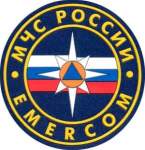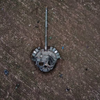offline
- powSrb
- Legendarni građanin

- Pridružio: 08 Mar 2015
- Poruke: 9457
|
Napisano: 24 Maj 2016 19:28
Towards the end of the Geneva negotiations
Citat:US implication in Syria is as bewildering as ever. Despite the fact that John Kerry had negotiated a cessation of hostilites on the 22 February 2016, and that Russia had withdrawn its bombers, Turkey - a member of NATO – continued its support for Daesh.
On the 8 March, Russia registered a report with the Security Council accusing Ankara of controlling the traffic of antiques for the benefit of Daesh [1]. On the 18 March, it registered a further report accusing Turkey of delivering arms and munitions to Daesh [2]. In both cases, Turkey «totally refuted» these allegations and accused Russia of organising a diversionary manœuvre to «distract the attention of the international community from the civilian losses, the chaos and the considerable destruction caused by the Syrian régime and Russian military operations in Syria». The Russian Chief of Staff retaliated by revealing that Ankara had just allowed 9,000 new jihadists to enter Syria. However, it is possible to imagine that Turkey had acted alone, without referring to the United States.
On the 7 April, the US Department of Defense delivered 2,000 tonnes of weapons to the «moderate armed groups», of which 500 tonnes were immediately redistributed to Al-Nusra (Al-Qaïda), and 500 more to Daesh [3].
In any case, Turkey’s support for Daesh seems to have diminished rapidly over the last few days.
It would seem that Moscow had secretly but violently protested, to the extent that on the 9 May, John Kerry and Sergeï Lavrov published a joint declaration [4]. They called on «all states to implement Security Council Resolution 2253 (2015), which forbids all material or financial assistance to Daesh, the al-Nusra Front or any other group qualified as terrorist by the UN Security Council, and to prevent any of these groups from crossing the frontier into Syria».
Above all, it was agreed that Washington would set a deadline for its allies - the start of July - to arrive at a negotiated agreement in Geneva. Beyond that date, the US would withdraw all their armed forces, while Russia would redirect its aircraft-carrier Admiral Kutznesov to the Syrian coast in order to resume, on a reduced scale, its bombing campaign against the terrorist organisations (who have since been re-armed) [5].
However, the uncertainty has still not been definitively resolved. A heated dispute opposed Russia and the United States at the UN concerning the Army of Islam (Jaysh al-islam) and the Islamic Movement of the Free Men of the Levant (Ahrar al-Sham). Moscow intended to add them to the list of «terrorist organisations», while Washington still wants to consider them as a «moderate armed group».
The Army of Islam is a formation funded by Saudi Arabia and supervised by the British SAS. Originally commanded by Zahran Allouche, it spread terror throughout the suburbs of Damascus and threatened the capital for three years. Its leader, who worshipped Osama Bin Laden, was characterised by his cruelty, ordering the decapitation of a number of local inhabitants, and using others, locked in cages, as human shields. Finally, the ’bunker-buster’ bombs of the Russian Air Force destroyed the underground head-quarters specially built to house his Staff. After a period of confusion, one of Allouche’s assistants, Issam el-Bouaydani, temporarily assumed his succession. He was rapidly ousted in favour of a Wahabist cleric, Sheikh Abou Abdarrahman Kaake, who recommended the nomination of one of Zahran Allouche’s cousins, Mohamed Allouche, to direct the delegation of the Saudi opposition at the intra-Syrian peace negotiations in Geneva. Mohamed Allouche had become celebrated for having thrown Syrians accused of being gay from the rooftops – the Syrian Arab Republic is the only Arab state to respect the private life of its citizens, and does not penalise homosexuals.
The Islamic Movement of the Free Men of the Levant is also supervised by the British. Like the Army of Islam, its communications are handled by InCoStrat [6]. Its «Minister for Foreign Affairs», Labib al-Nahhas, circulates freely in the West. He is in fact also British, and a member of MI6. He published an op-ed in the Washington Post [7], and paid a secret visit to New York last December to present his report to Jeffrey Feltman.
On the 17 May, the International Syria Support Group met in Vienna. In its final declaration [8], it questions the Syrian Arab Army’s strategy of encircling the villages controlled by the jihadists of the «moderate opposition». But above all, it once more validates all of the Russo-US decisions of these last months, namely -
- to form a common organisation for the transition between the Syrian government and the entire range of opposition parties when the moment for transition is reached;
- to elaborate a new Constitution;
- then to organise new Presidential and parliamentary elections on that basis.
However, even though Saudi Arabia is a member of the International Syria Support Group, the moderate opposition still refuses to accept these three points. It persists in demanding the departure of President el-Assad and most of the Christian, Chiite and Alawite senior civil servants before the formation of the transition organisation. Furthermore, it does not intend to run against the current leaders in a round of democratic elections.
It is not inconsequential that during the meeting in Vienna, a diplomat declared that his country was ready to fight Al-Qaïda, but that he was concerned as to who would then ocupy the terrain. Sergeï Lavrov noted what he considered to be a «lapsus» - this diplomat was admitting, de facto, that his country preferred the victory of Al-Qaïda to the victory of the Syrian Arab Republic. By doing so, he was distancing himself from the decision of the Security Council to make the fight against terrorism its primary objective.
On the same day, the 17 May, the special representative for the UN Secretary General, Terje Rød-Larsen, presented his final report on the application of Resolution 1559, and announced his resignation. The Resolution had been drawn up in 2004, on the initiative of the United States, France and Saudi Arabia, to demand the disarmement of the Lebanese Hezbollah, the non-renewal of President Emile Lahoud’s mandate, and the withdrawal of the Syrian peace force from Lebanon. The Resolution had never been applied, although Syria withdrew its soldiers of its own accord when asked to do so by the Lebanese public during the «Cedar Revolution». Mr. Ban immediately charged his assistant for Political Affaires, Jeffrey Feltman, with taking over Mr. Terje Rød-Larsen’s functions as well as his own until the end of the year. However, very many observers consider that Jeffrey Feltman, ex-US Ambassador in Beirut, is the real author of Resolution 1559, and that today, he secretly directs the military coalition against Syria from New York.
On the 19 May, Jeffrey Feltman took part in a ceremony in Paris alongside members of the foreign Syrian opposition, Burhan Ghalioun, Michel Kilo, Bassma Kodmani and Samar Yazbeck.
Still in France, General Benoît Puga announced his resignation as the French President’s personal Chief of Staff, in order to join the Chancellory of the Légion d’Honneur. An integrist Christian, nostalgic for the monarchy and colonisation, he was the only military man to occupy his post during the mandates of two successive Presidents, Nicolas Sarkozy and François Hollande. He had personally directed France’s secret operations in Syria – sometimes in contradiction to the advice of the Army’s Chief of Staff – notably with the assistance of the officers of the French Foreign Legion who worked directly for the Presidency.
We are moving inexorably towards an interruption of the Geneva negotiations. Moreover, if an agreement should be found between the Syrian parties present, it would be invalidated in the light of earlier international decisions, taking into account the exclusion – demanded by Turkey – of the main Kurdish party. This is why the failure of the Geneva talks would probably be followed by the reumption of the intra-Syrian negotiations between those who wish to take part – in other words, without the pro-Saudis, but with the Kurds. Then the formation of a transitional system with new participants. On the military side, the Syrian Arab Army should take back the country’s main cities, but combats will probably persist at the Iraqi-Syrian frontier.
[Link mogu videti samo ulogovani korisnici]
Dopuna: 24 Maj 2016 19:30
Први део акције је чишћење свега до града и његова опсада.
Неће то скоро ако се терористи буду бранили.
Citat:#SDF operation is a 3 pronged attack: #Ain_Issa town، Alnaxil Restaurant، Brigade 93 .
15km wide.
Press Office
|




















